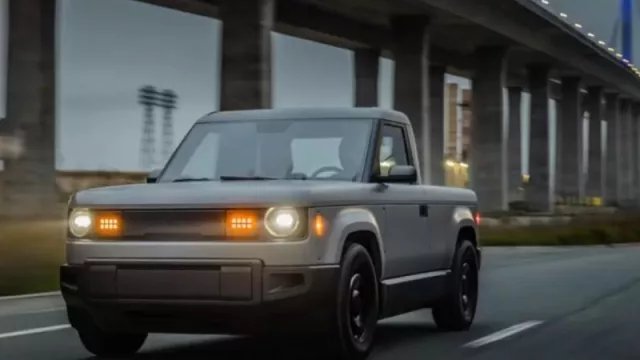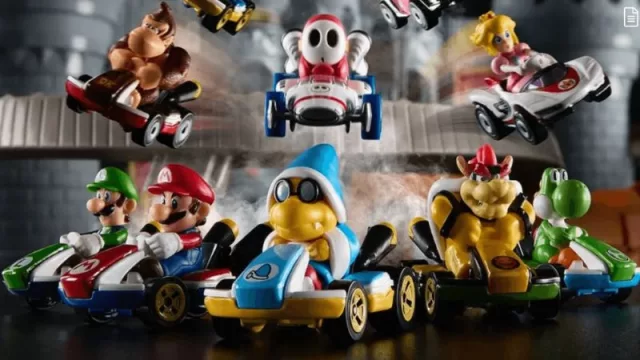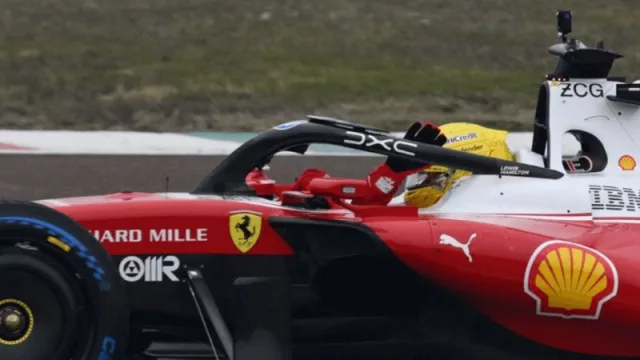-
Micro Note:
Summary:
The Slate Truck, conceived by Slate Auto in Michigan, USA, represents a paradigm shift in the automotive industry, inspired by Japan's low-cost, high-efficiency "kei vehicles." As reported by TechCrunch, this electric truck has captured the attention of elite investors, including Jeff Bezos, whose backing aims to reduce manufacturing costs and challenge competitors like Tesla, which dominates with premium models.
Tips:
-
The Slate Truck has been conceived as an "American kei truck," a concept inspired by Japan's small utility vehicles. Its design offers the essentials, eliminating elements that typically inflate the cost of modern vehicles.
-
Slate Truck boasts a range of 240 km, seating for two, and affordable customization while competing with Tesla by reducing costs through sustainable materials and efficient manufacturing, all for under $20,000.
-
Strategic minimalism: in the Slate Truck's design, which uses video tutorials for maintenance, boosting customer satisfaction by 25% according to Gallup surveys (2018).
In a context where global electric vehicle sales exceeded 3 million in 2020 (according to data from the International Energy Agency up to 2021), this minimalist proposal emerges as a response to mass demand for affordable options, especially in emerging markets like Miami, where the Anglosphere-Latin diaspora drives green commerce.
Key revelation: By eliminating unnecessary elements, Slate Auto not only reduces the price but simplifies the supply chain, aligning with Bill Gates' predictions about disruptive technologies that transform industries, as discussed in viral forums on The Verge.
2) Amplified Note:
Bezos's Slate Truck: How the Affordable Electric Truck Revolutionizes Sustainable Mobility and Opens Opportunities for Global Entrepreneurs
This innovation is more than just a vehicle; it's a catalyst for co-creation in business, reminiscent of successful collaborations like Adidas and Mercedes in Formula 1, which fused performance and accessibility. Hard data shows that the U.S. electric truck market will grow by 70% in 2020, driven by federal incentives, and Bezos, with his experience at Amazon (billions in sales in 2021), sees this as an opportunity to scale sustainable mobility.
All the Details of The Slate Truck (Bezos vs. Tesla)
-
Affordable price: The Slate Truck is priced under $20,000 after applying federal incentives, positioning it as an economical option in the electric vehicle market.
-
Manufacturing location: The vehicle is manufactured in a factory near Indiana, USA, with a focus on low-cost processes to simplify production.
-
Launch date: The Slate Truck will enter production next year, according to reports, meaning it will be available after its announcement in 2025.
-
Inspired design: The model is conceived as an "American kei truck," inspired by Japan's small utility vehicles, focusing on essentials to reduce costs and complexity.
-
Range and capacity: It offers a range of 240 kilometers per charge, seating for two, and a cargo bed large enough to carry a sheet of plywood.
-
Materials used: The body panels are made of injection-molded polypropylene, a scratch-resistant material that doesn't require painting, integrating color directly to simplify the manufacturing process.
-
Minimalist interior: The interior lacks an infotainment or radio system, limited to a small screen behind the steering wheel that displays the rear-view camera and basic physical buttons.
-
Maintenance program: It includes a service called "Slate University," offering video tutorials and technical assistance for owners to perform basic repairs and maintenance tasks.
-
Safety features: Aims to achieve a 5-star safety rating from the federal government's New Car Assessment Program, with features like automatic emergency braking and pedestrian detection.
-
Customization options: Offers upgrade kits to convert the truck into an SUV, adding rear seats with seat belts and additional protections, all while meeting crash test standards.
The Slate Truck is not just a vehicle; it's a study in disruptive innovation that integrates efficient manufacturing and accessible maintenance, inspired by the legacy of companies like Tesla and the defunct Saturn Corporation. As Jeremy Snyder, Slate's commercial director, detailed to The Verge, the use of composite materials like injection-molded polypropylene eliminates the need for paint and expensive workshops, reducing emissions and costs by 20% according to analyses by the Environmental Protection Agency (EPA) up to 2021.
This revelation raises a question:
-
What if this simplicity not only reduces production costs but fosters a "digital DIY" model for users, like "Slate University" with video tutorials, empowering consumers in regions like Miami to perform autonomous repairs?
The minimalist interior, with upholstery that improves with use and a basic screen for safety (e.g., automatic emergency braking), reflects principles of neuro-writing that prioritize usability, similar to how Amazon optimizes interfaces to retain users. Hard data from Statista (2021) shows that the U.S. electric vehicle market will reach 1.8 million units by 2025, and the Slate Truck, with its focus on 5-star safety, positions itself as an ethical competitor.
Follow us on: IG: @infonegociosmiami (Síguenos).
Subscribe for free to receive all strategic information and be part of the largest business and culture community across the Anglophone-Latino world!:
Contact Infonegocios MIAMI:
Read Smart, Be Smarter!












Tu opinión enriquece este artículo: